40 Amazing Animals with Stripes
Stripes are nature’s fashion statement, and the animal kingdom proudly boasts an array of creatures adorned with these captivating patterns. From the elegant zebra to the elusive tiger, stripes are more than just an aesthetic feature; they serve many purposes in the wild. In this journey through the wild world of stripes, we will unravel the mysteries behind these fascinating designs and explore the top 40 amazing animals that proudly wear stripes.
What Are Striped Animals?
Striped animals are those adorned with distinctive lines or bands running across their bodies. These stripes come in various shapes, sizes, and colours and are critical to an animal’s identity. Often, these patterns are synonymous with the animal’s survival strategies, camouflage, or communication. Let’s delve deeper into the world of these mesmerising creatures and discover the reasons behind their unique stripes.
Reasons Why They Have Stripes
The stripes adorning these remarkable animals serve multifaceted purposes. First and foremost, stripes often act as camouflage, allowing these creatures to blend seamlessly into their natural environments, whether it’s the zebra in the African savannah or the snow leopard in the Himalayan snowscapes. Additionally, stripes play a vital role in communication and social signalling, aiding them in everything from warning them about potential predators to establishing territory or indicating toxic traits. Finally, stripes can serve as a deterrent or a means of deception, providing protection or confusing would-be threats in the animal kingdom (1).
List of Striped Animals
In the captivating world of wildlife and zoo animals, stripes adorn the coats of numerous creatures, each with its unique charm and characteristics. This section explores a diverse list of striped animals, revealing their scientific names, animal types, habitats, diets, and where to encounter these fascinating striped beings. Whether you’re searching for animals with stripes for kids, seeking inspiration for a project, or simply curious about the creatures of the wild, join us on this striped adventure through the animal kingdom.
1. Zebra
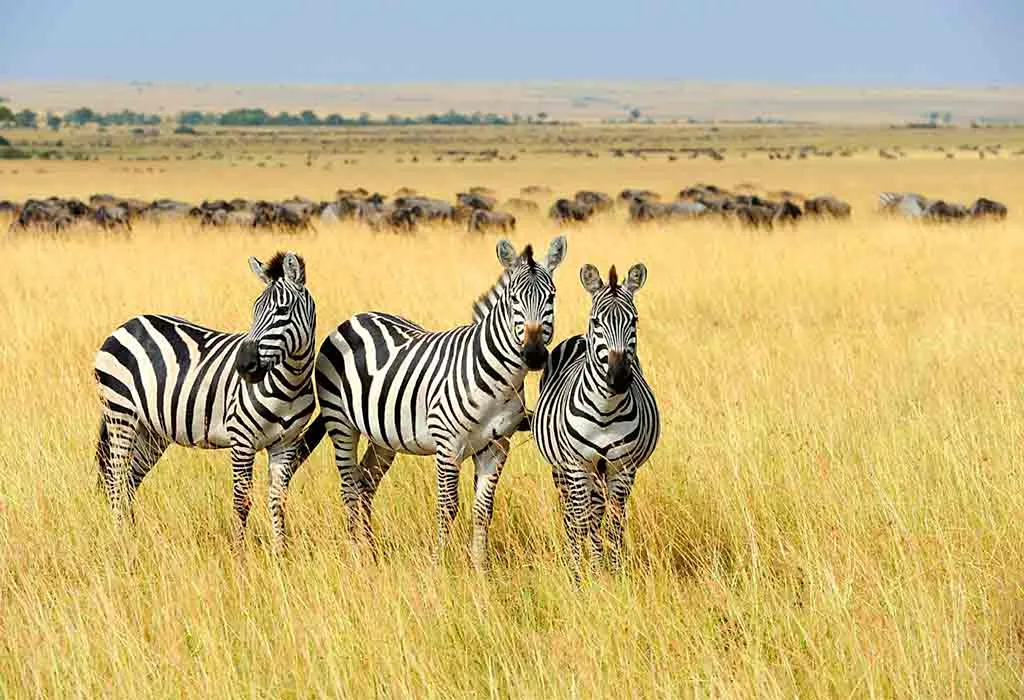
Scientific Name: Equus zebra
Animal Type: Mammal
Habitat: African grasslands
Diet: Herbivore
Where Is It Found: Africa
2. Tiger
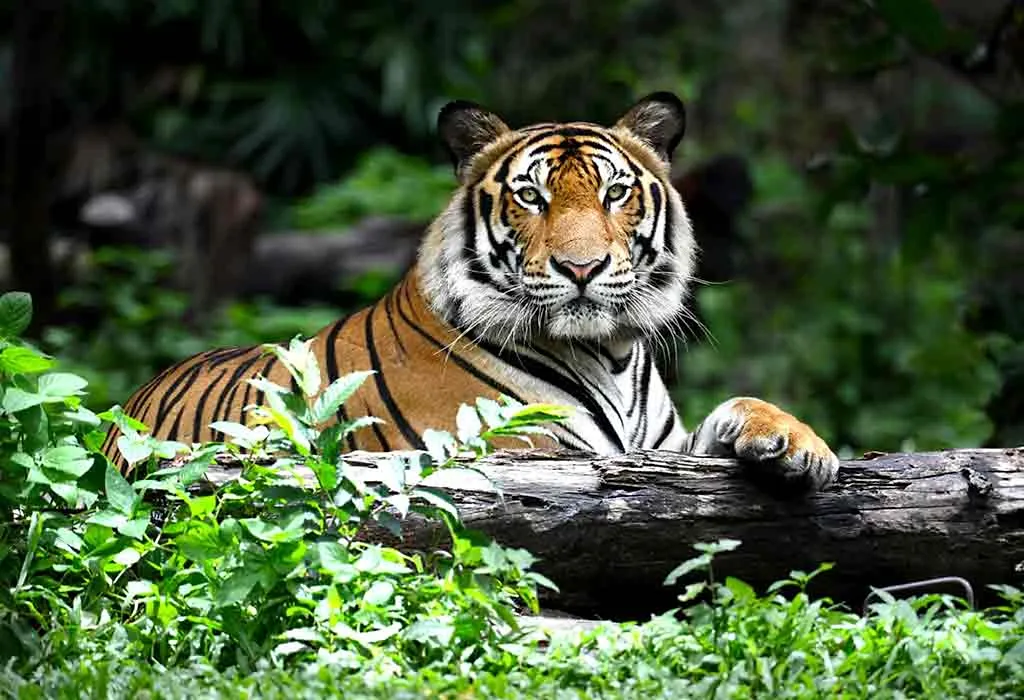
Scientific Name: Panthera tigris
Animal Type: Mammal
Habitat: Various, including forests and grasslands
Diet: Carnivore
Where Is It Found: Asia
3. Aardwolf
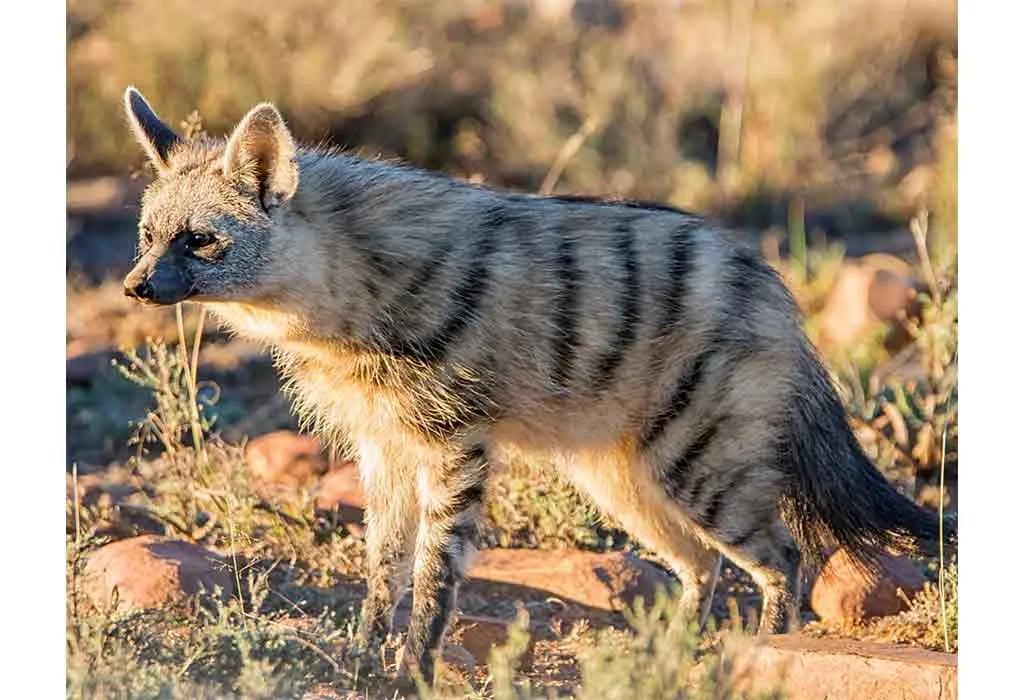
Scientific Name: Proteles cristata
Animal Type: Mammal
Habitat: Savannas, Semi-Arid Open Plains, and Grasslands
Diet: Insectivore
Where Is It Found: East and South Africa
4. Badger
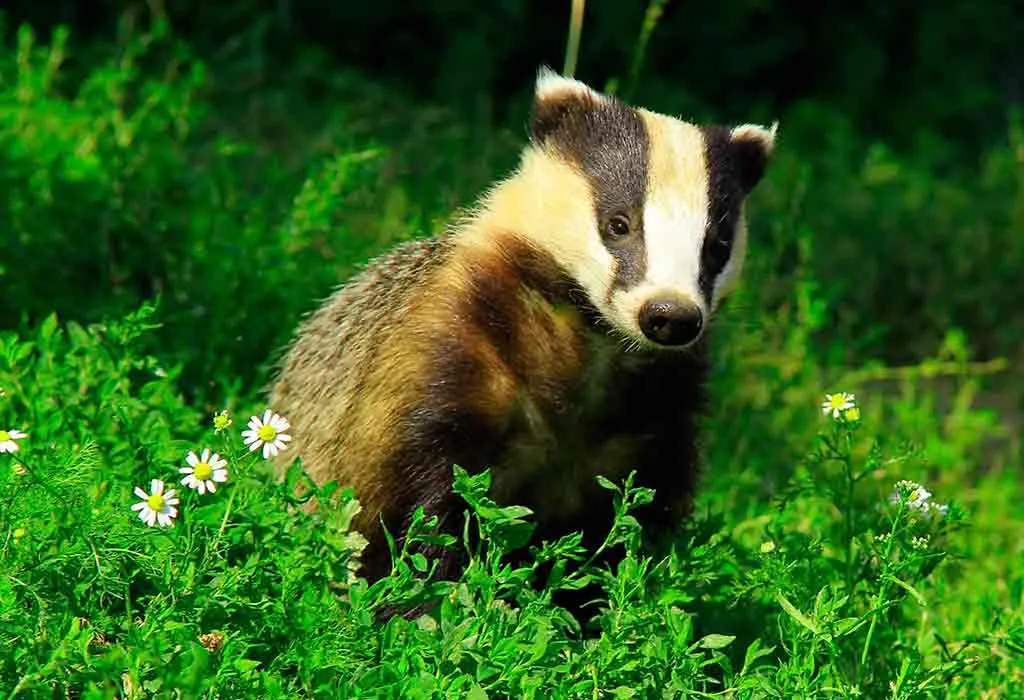
Scientific Name: Meles meles
Animal Type: Dry grasslands, Quarries, Woodlands, Hedges, Sea cliffs, and Moors
Habitat: Arid grasslands
Diet: Omnivore
Where Is It Found: Europe and North America
5. Red Panda
Scientific Name: Ailurus fulgens
Animal Type: Mammal
Habitat: Himalayan forests
Diet: Herbivore
Where Is It Found: Asia
6. Ruffed Lemur
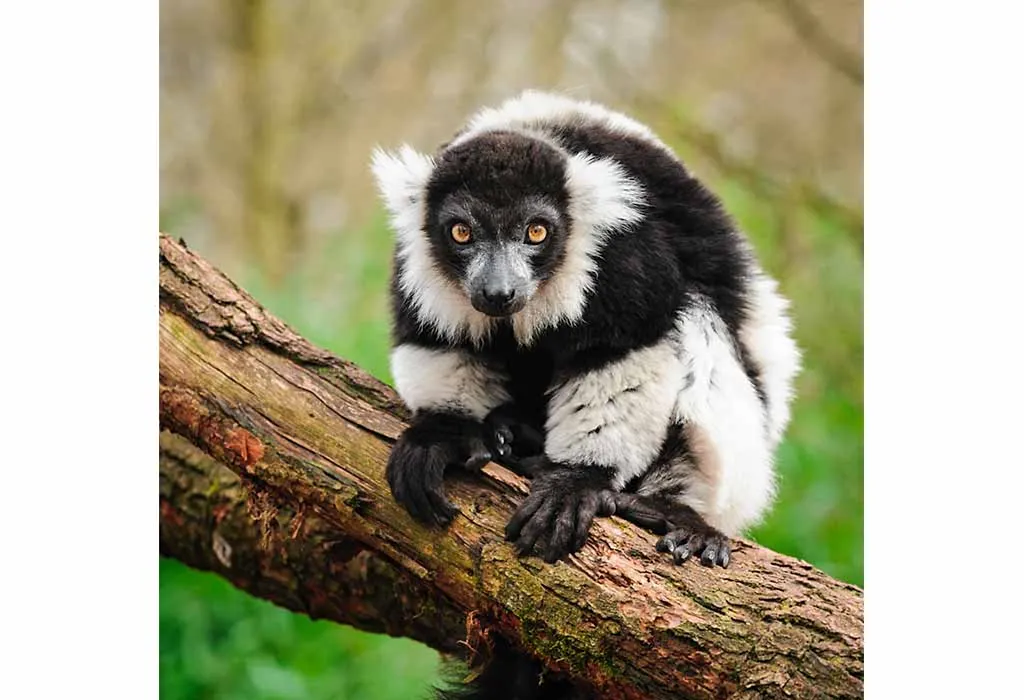
Scientific Name: Varecia variegata
Animal Type: Mammal
Habitat: Madagascar rainforests
Diet: Omnivore
Where Is It Found: Madagascar
7. Okapi
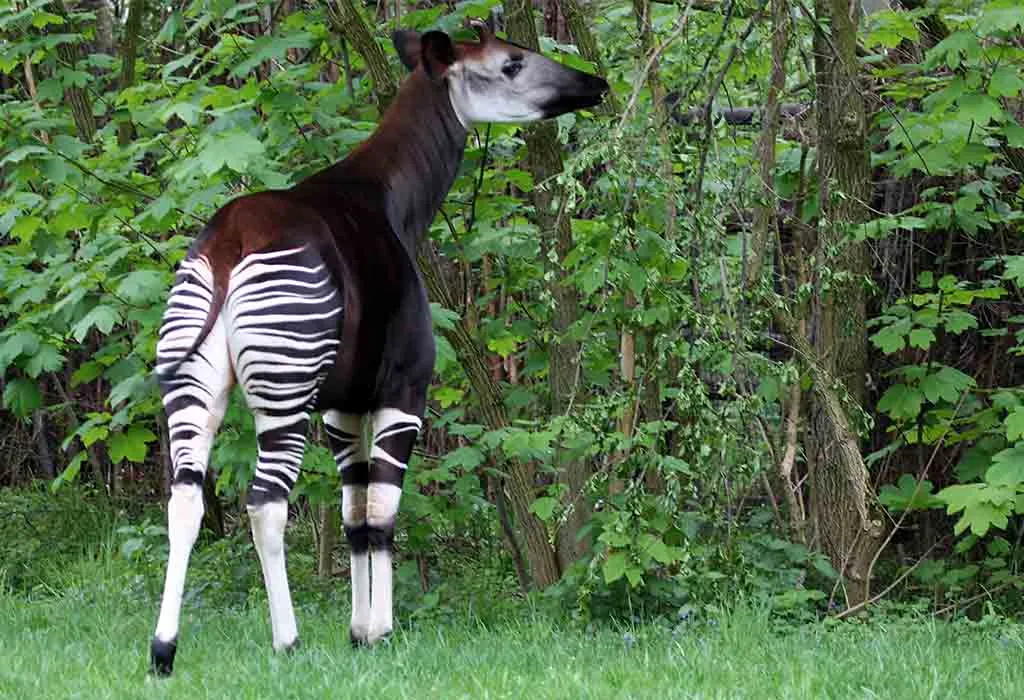
Scientific Name: Okapia johnstoni
Animal Type: Mammal
Habitat: Congo rainforests
Diet: Herbivore
Where Is It Found: Central Africa
8. Humboldt Penguin

Scientific Name: Spheniscus humboldti
Animal Type: Bird
Habitat: Coastal areas of South America
Diet: Carnivore
Where Is It Found: South America
9. Tasmanian Tiger
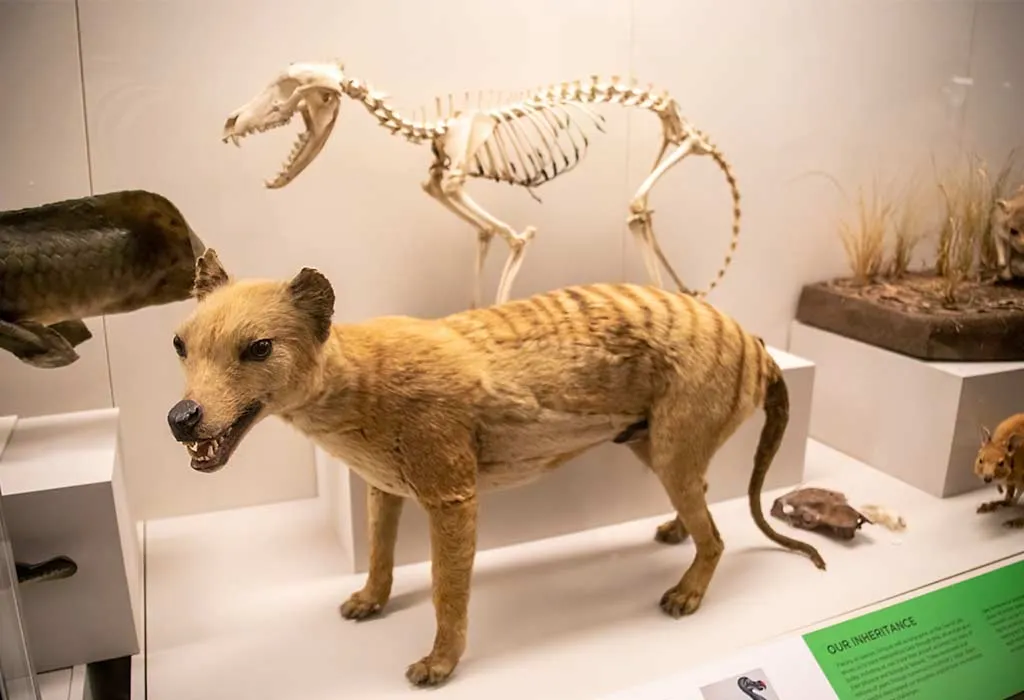
Scientific Name: Thylacinus cynocephalus
Animal Type: Marsupial
Habitat: Tasmania, Australia
Diet: Carnivore
Where Is It Found: Extinct
10. Malayan Tapir
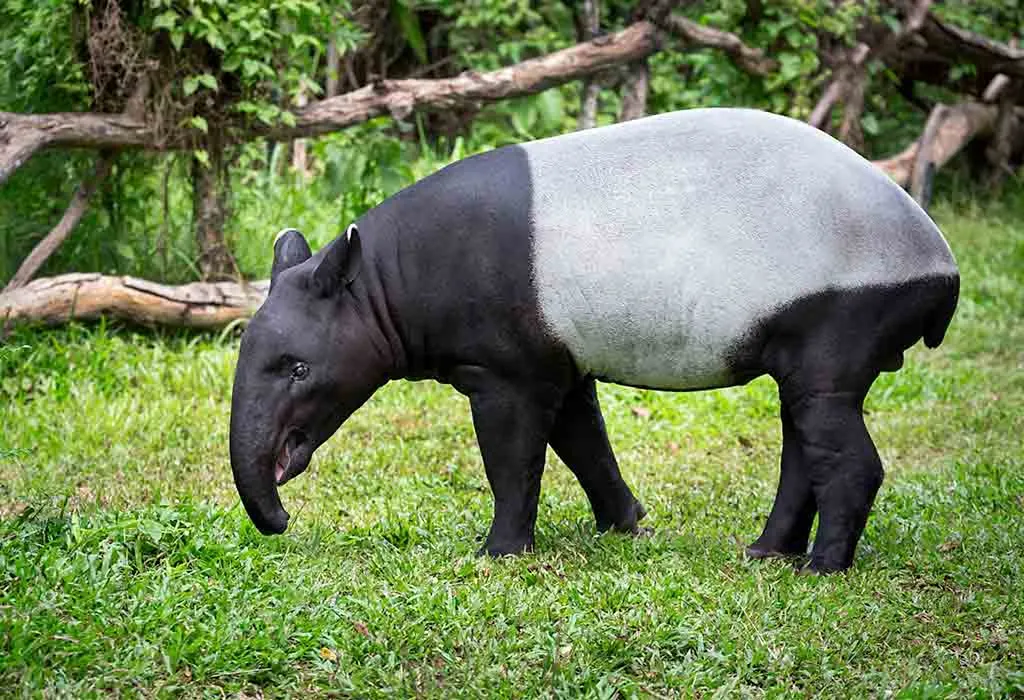
Scientific Name: Tapirus indicus
Animal Type: Mammal
Habitat: Rainforests of Southeast Asia
Diet: Herbivore
Where Is It Found: Southeast Asia
11. Bengal Cat
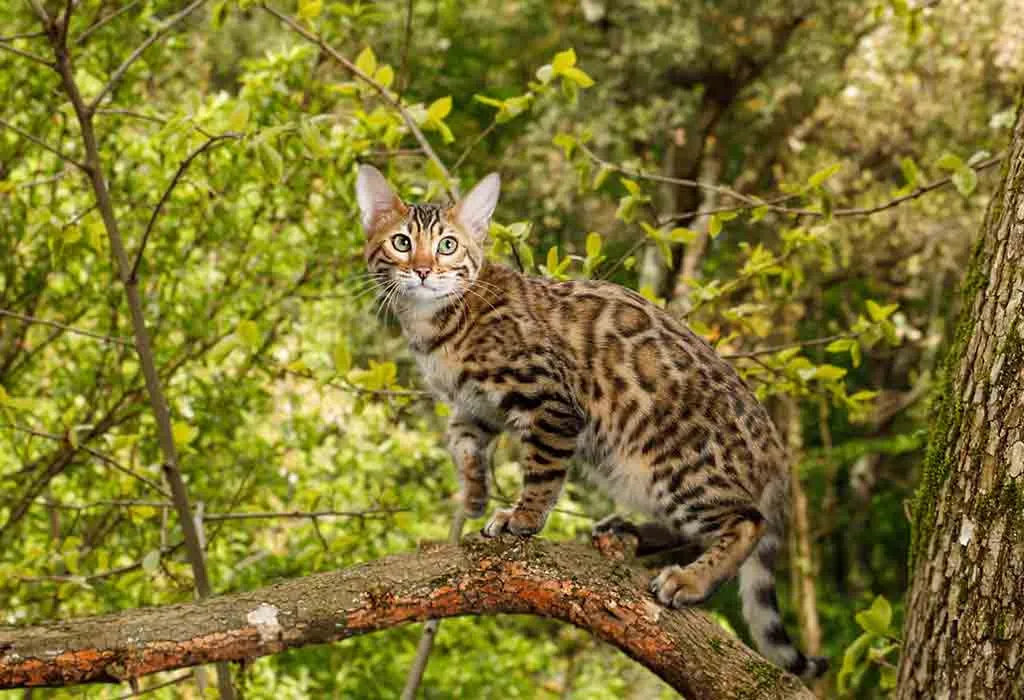
Scientific Name: Felis catus
Animal Type: Mammal (Domesticated)
Habitat: Households worldwide
Diet: Carnivore
Where Is It Found: Worldwide
12. Giant Panda
Scientific Name: Ailuropoda melanoleuca
Animal Type: Mammal
Habitat: Bamboo forests in China
Diet: Herbivore
Where Is It Found: China
13. Bongo
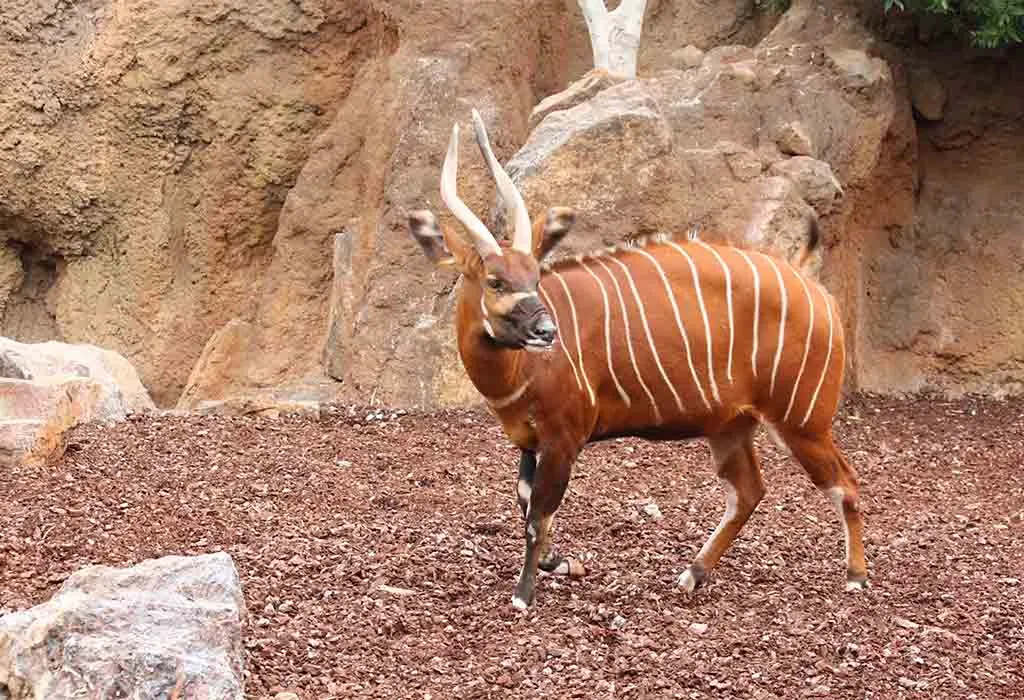
Scientific Name: Tragelaphus eurycerus
Animal Type: Mammal
Habitat: Rainforests
Diet: Herbivore
Where Is It Found: Dense African forests
14. Bumblebee
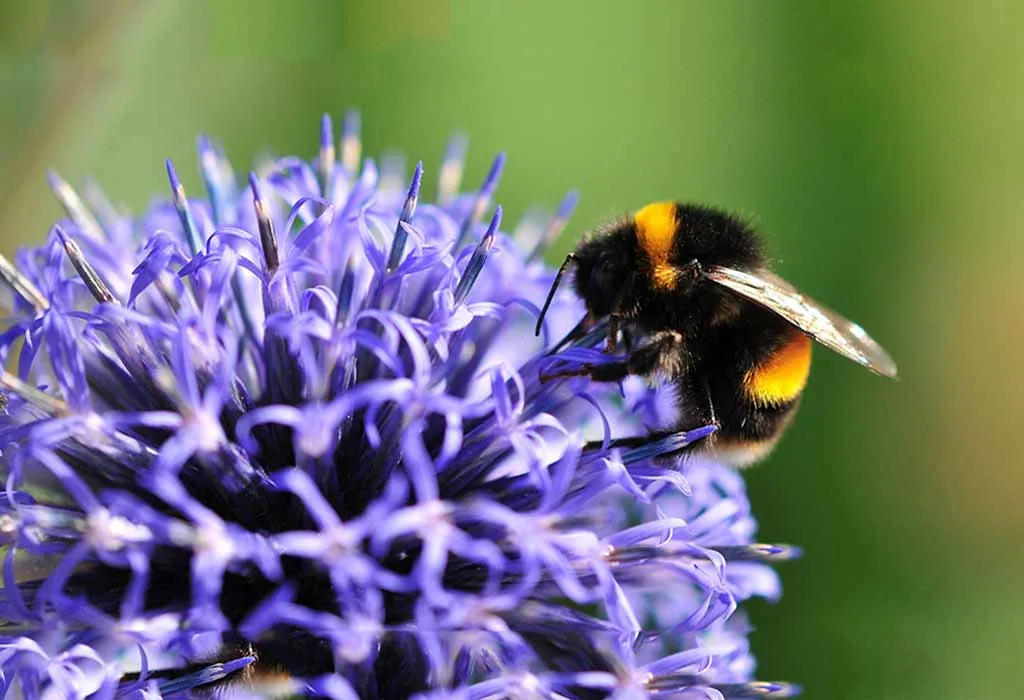
Scientific Name: Bombus
Animal Type: Insect
Habitat: Temperate regions/climates
Diet: Herbivore
Where Is It Found: Higher regions in the Northern Hemisphere, New Zealand, and South America
15. Threebar Dascyllus

Scientific Name: Dascyllus aruanus
Animal Type: Fish
Habitat: Lagoons and Coral Reefs
Diet: Omnivore
Where Is It Found: Red Sea, Pitcairn Islands, East Africa, Southern Japan, Australia, and Lord Howes Islands
16. Tiger Salamander
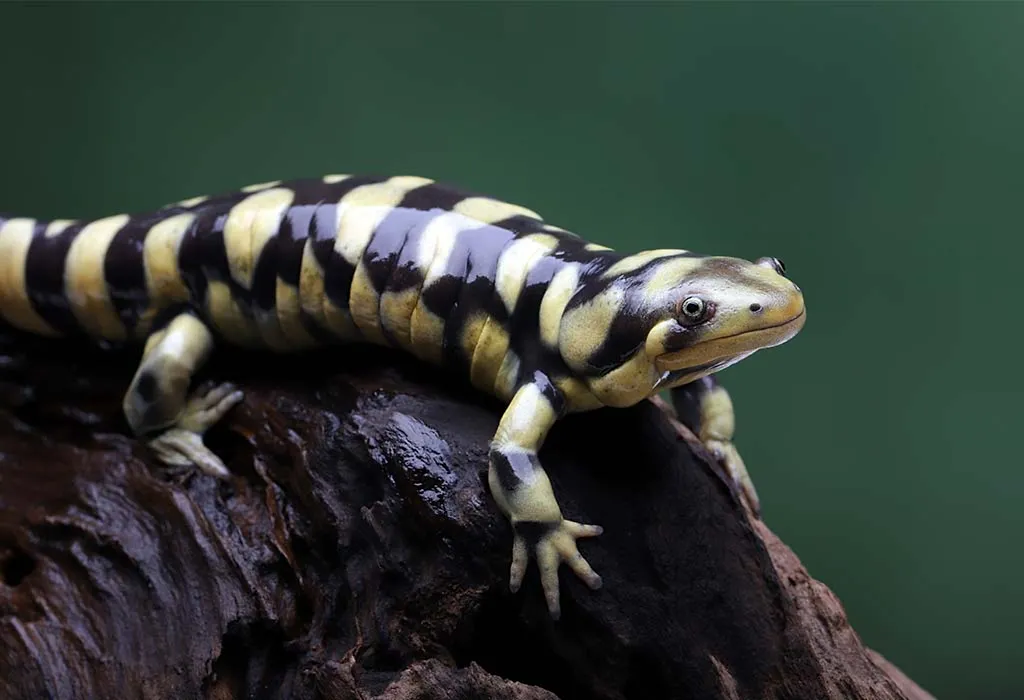
Scientific Name: Ambystoma tigrinum
Animal Type: Amphibian
Habitat: North American wetlands
Diet: Insects and small prey
Where Is It Found: North America
17. Gila Monster
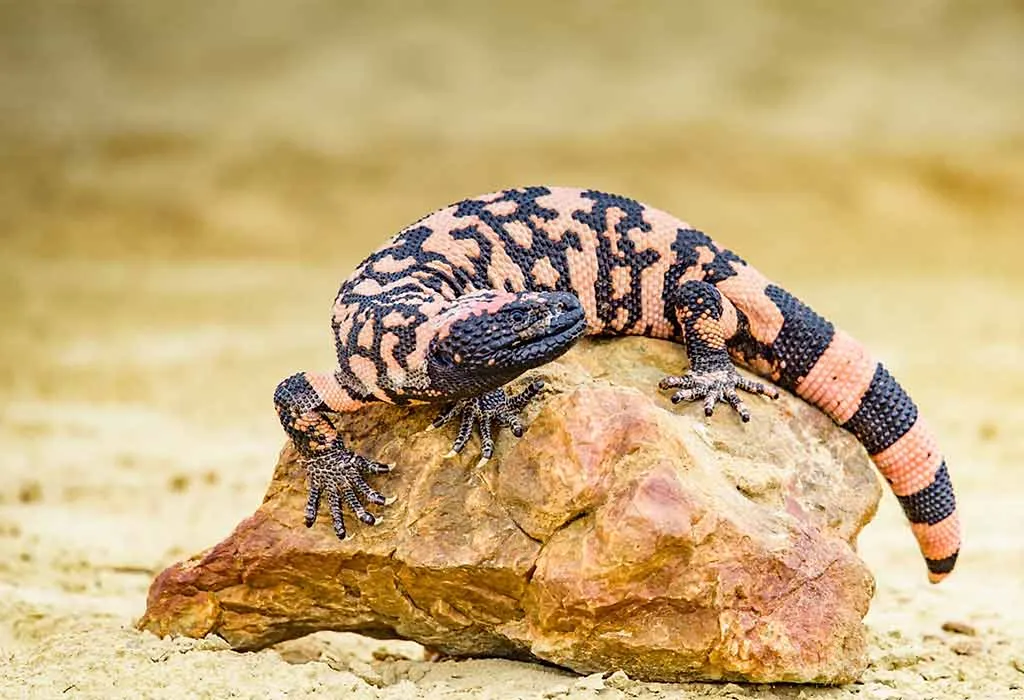
Scientific Name: Heloderma suspectum
Animal Type: Reptile
Habitat: Arid regions of the southwestern United States and Mexico
Diet: Carnivore
Where Is It Found: North America
18. Quokka
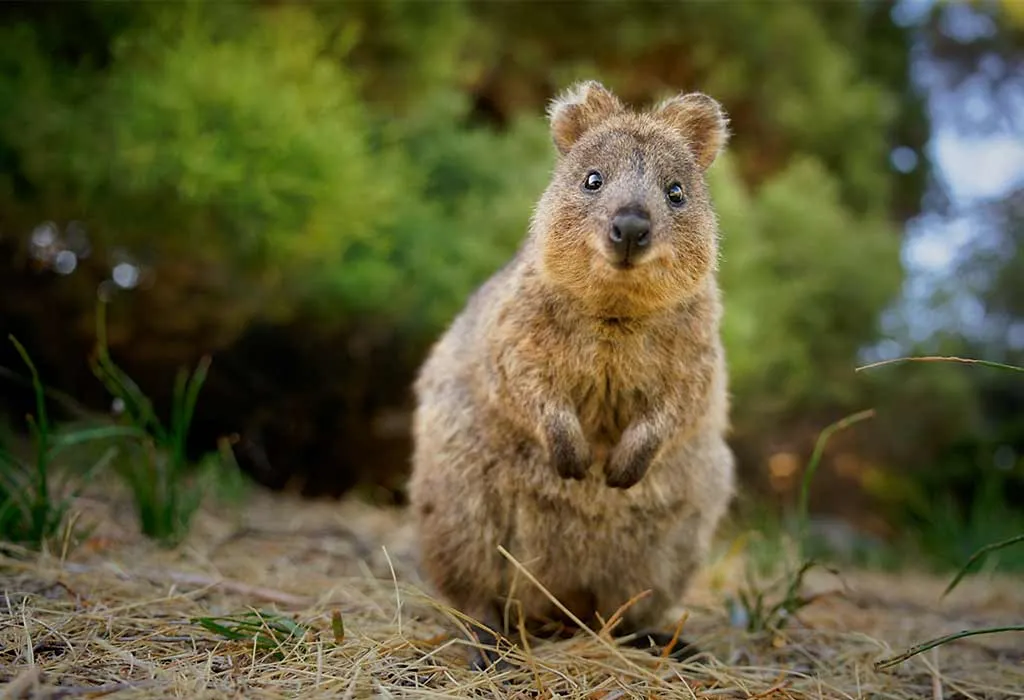
Scientific Name: Setonix brachyurus
Animal Type: Mammal
Habitat: Rottnest Island, Australia
Diet: Herbivore
Where Is It Found: Australia
19. Eastern Chipmunk
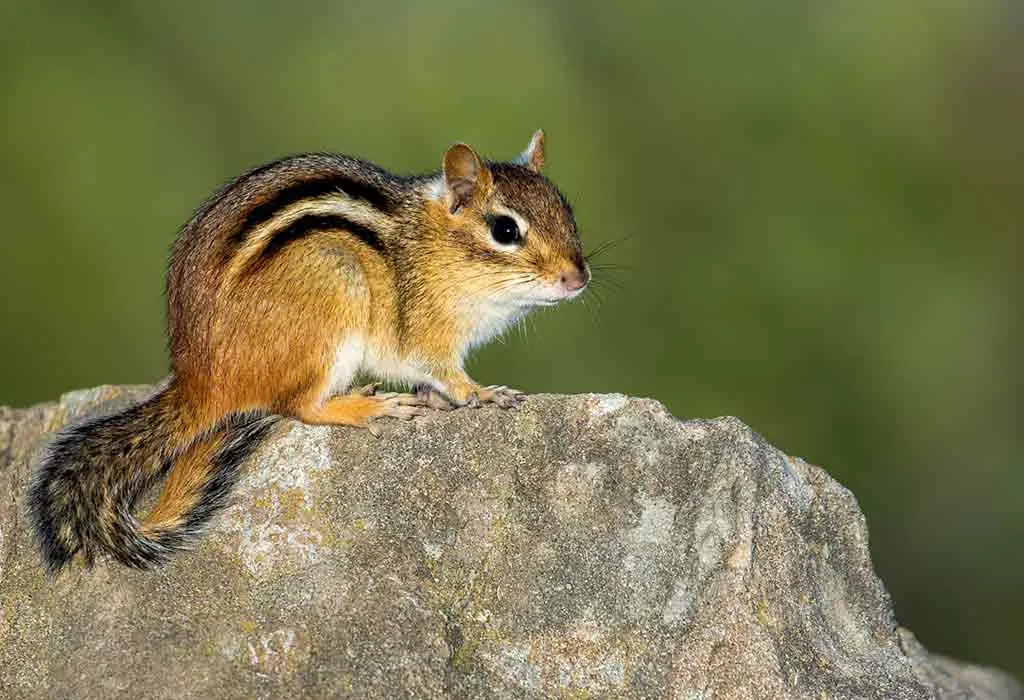
Scientific Name: Tamias striatus
Animal Type: Mammal
Habitat: Deciduous Forests
Diet: Omnivore
Where Is It Found: Mexico, North America, Southern Canada
20. Mantis Shrimp
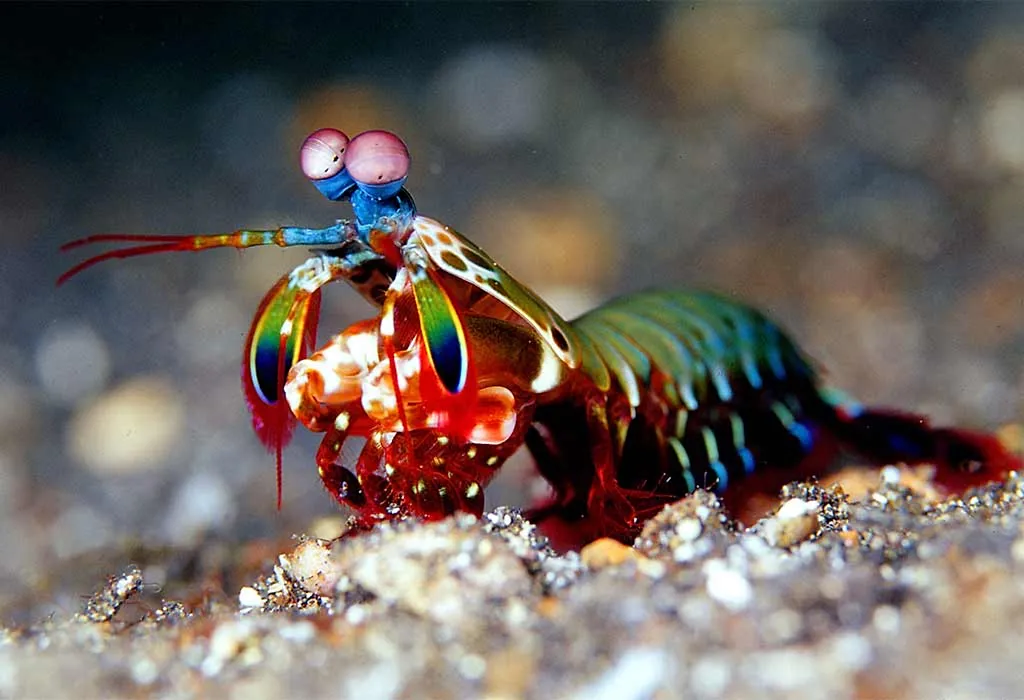
Scientific Name: Stomatopoda
Animal Type: Crustacean
Habitat: Coral reefs and shallow waters worldwide
Diet: Predatory, feeding on small fish and crustaceans
Where Is It Found: Global oceans
21. African Civet
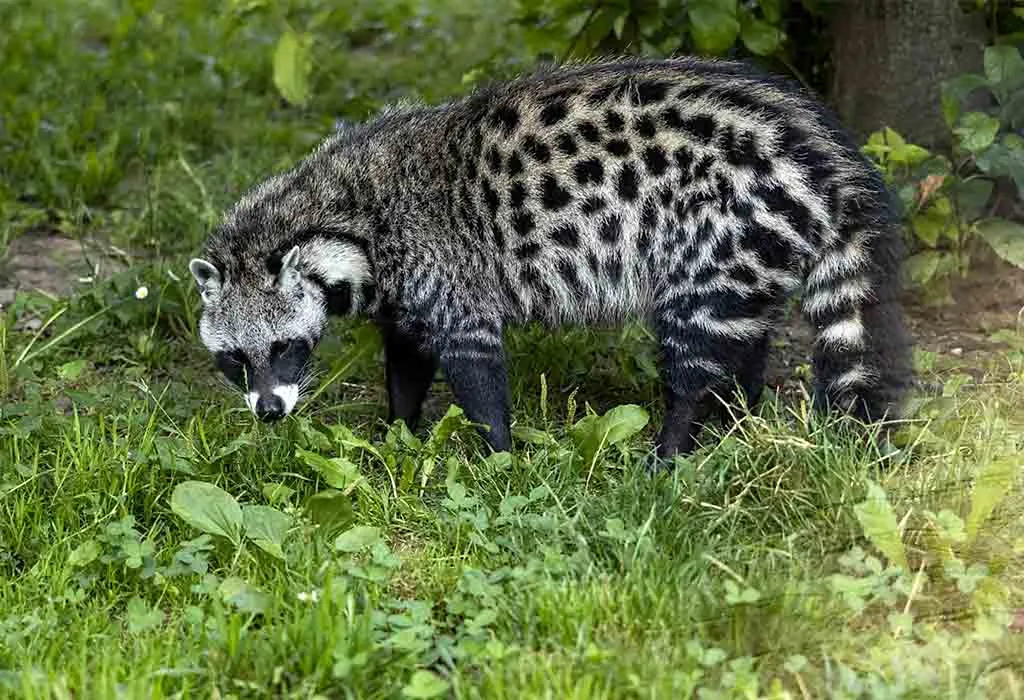
Scientific Name: Civettictis civetta
Animal Type: Mammal
Habitat: Sub-Saharan Africa
Diet: Omnivore
Where Is It Found: Africa
22. African Skunk
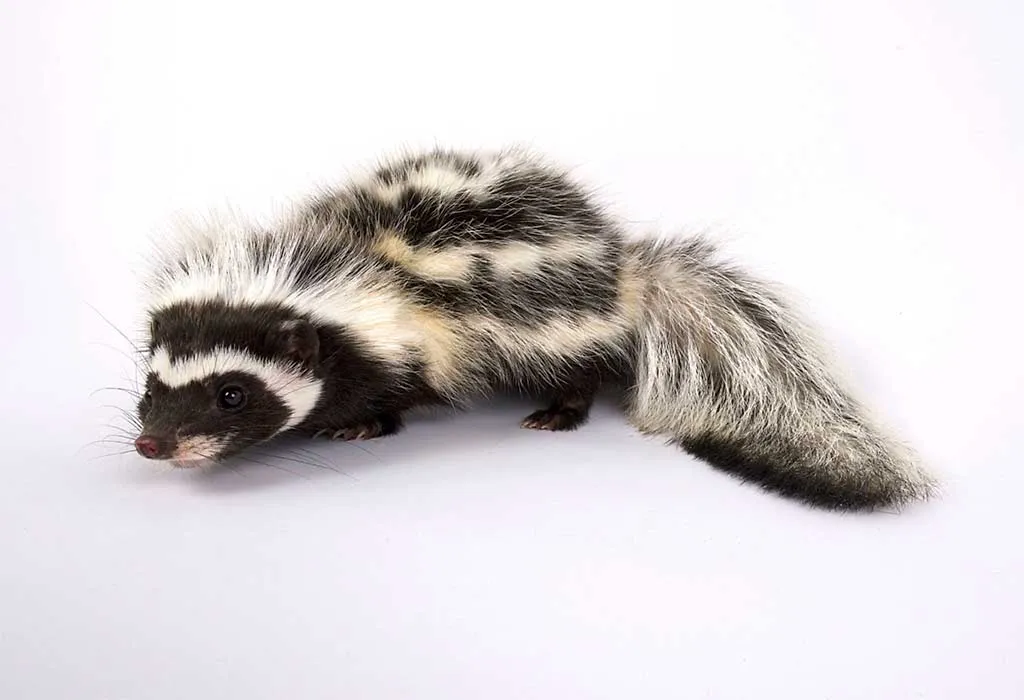
Scientific Name: Genus Ictonyx
Animal Type: Mammal
Habitat: Various African habitats
Diet: Omnivore
Where Is It Found: Africa
23. Black and White Colobus Monkey
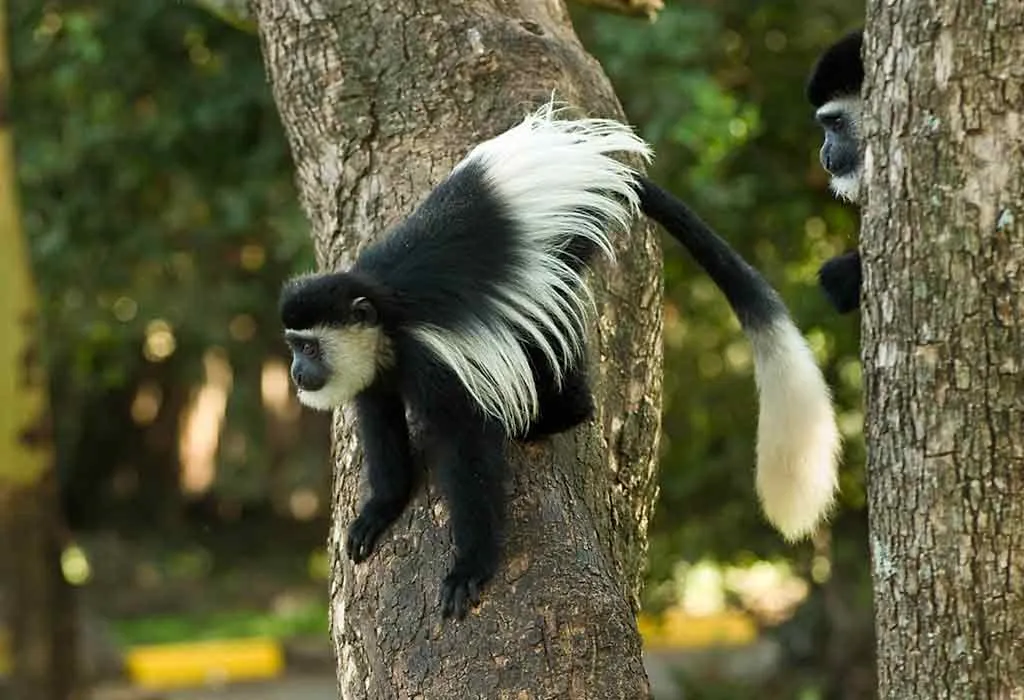
Scientific Name: Colobus guereza
Animal Type: Mammal
Habitat: African forests
Diet: Herbivore
Where Is It Found: Africa
24. Ring-Tailed Lemur
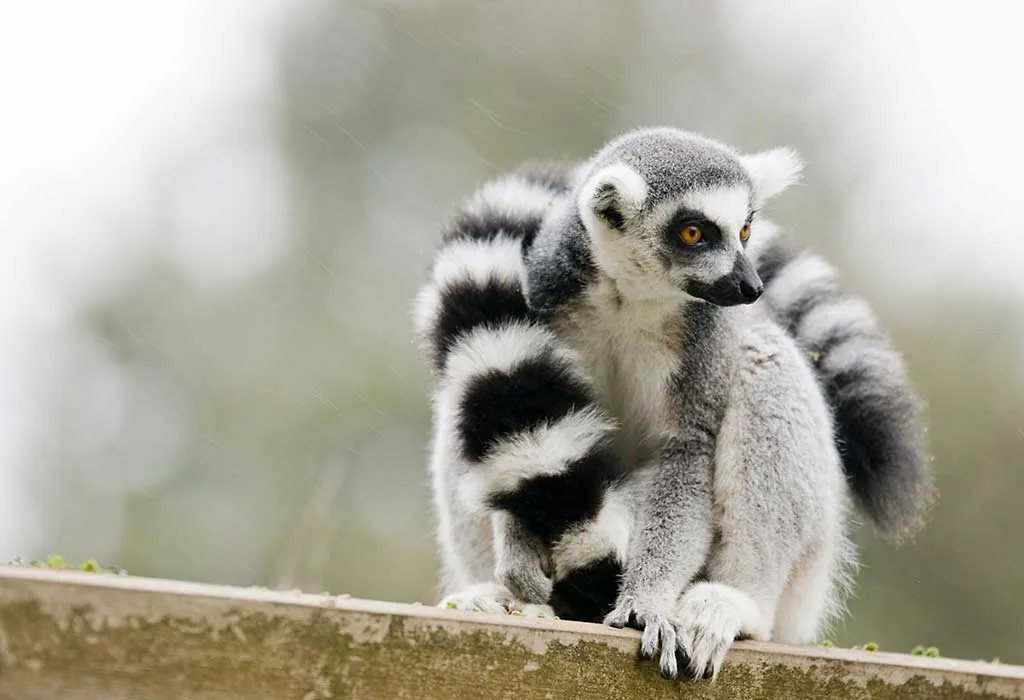
Scientific Name: Lemur catta
Animal Type: Mammal
Habitat: Southern Madagascar
Diet: Omnivore
Where Is It Found: Madagascar
25. Sumatran Tiger
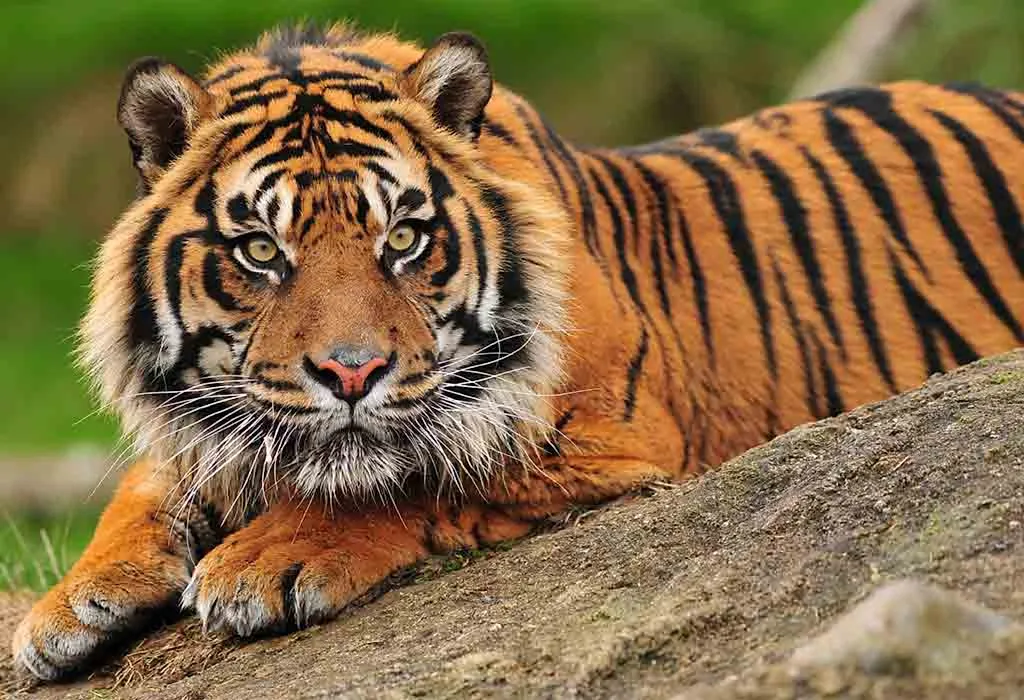
Scientific Name: Panthera tigris sumatrae
Animal Type: Mammal
Habitat: Sumatran rainforests
Diet: Carnivore
Where Is It Found: Sumatra
26. Grevy’s Zebra
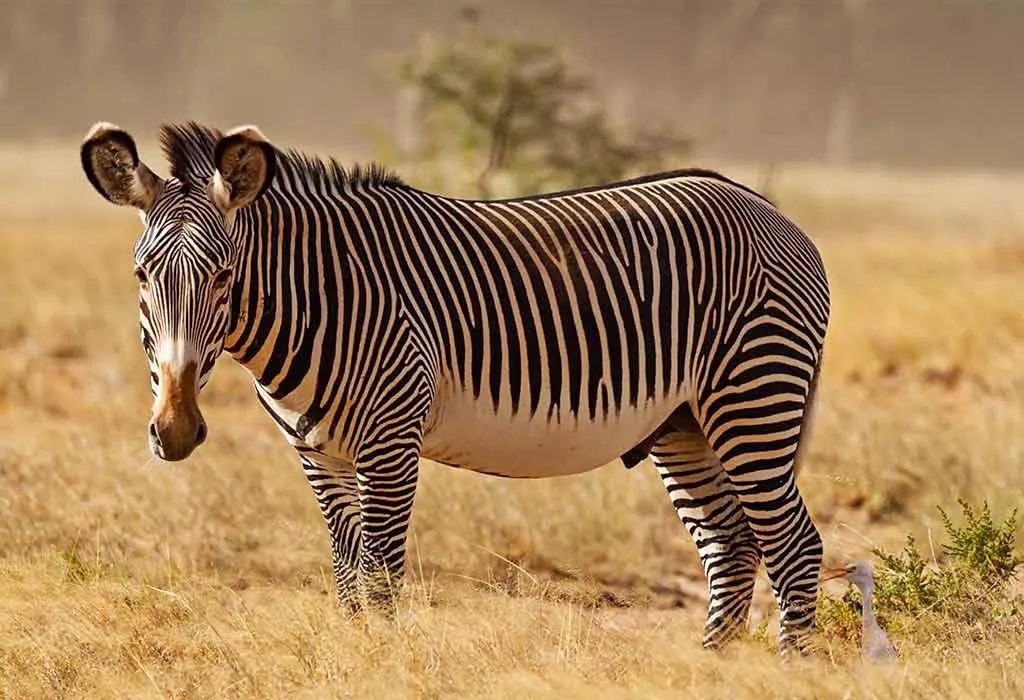
Scientific Name: Equus grevyi
Animal Type: Mammal
Habitat: Arid grasslands
Diet: Herbivore
Where Is It Found: Eastern Africa
27. Ribbon Seal
Scientific Name: Histriophoca fasciata
Animal Type: Mammal
Habitat: Arctic and subarctic waters
Diet: Carnivore
Where Is It Found: Northern Pacific Ocean
28. Banded Palm Civet
Scientific Name: Hemigalus derbyanus
Animal Type: Mammal
Habitat: Southeast Asian forests
Diet: Omnivore
Where Is It Found: Southeast Asia
29. Wunderpus Octopus

Scientific Name: Wunderpus photogenicus
Animal Type: Mollusc
Habitat: Shallow water bodies with soft sediment substrates
Diet: Carnivore
Where Is It Found: Indo-Malayan Archipelago, including Vanuatu, Papua New Guinea, Indonesia, and Malaysia, north of the Philippines.
30. Moorish Idol Fish
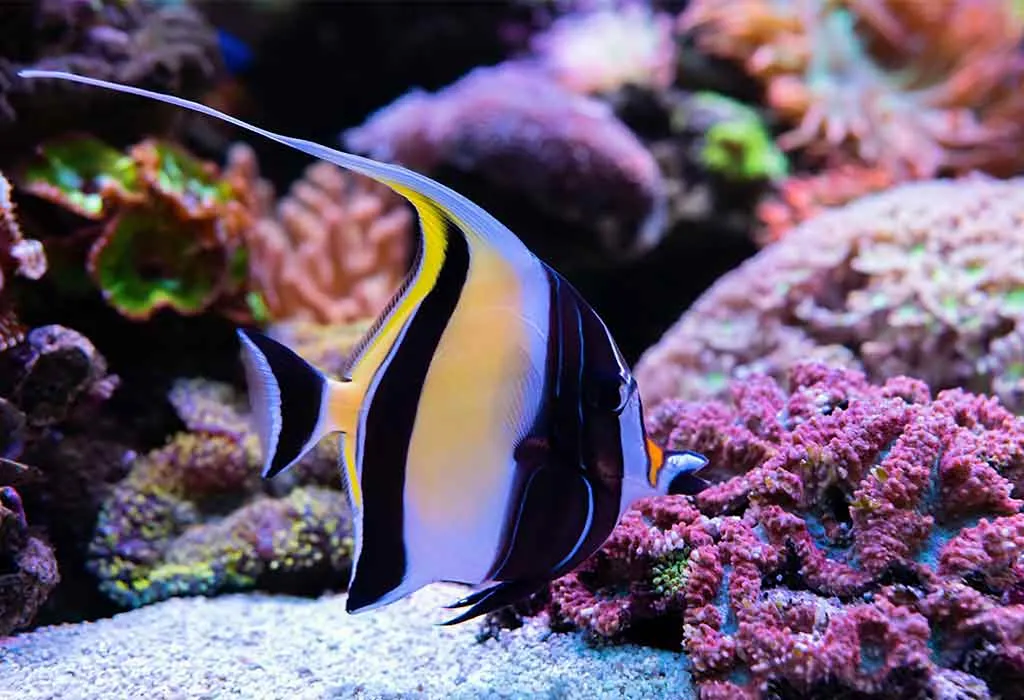
Scientific Name: Zanclus cornutus
Animal Type: Fish
Habitat: Flat reefs in clear or murky water
Diet: Omnivore
Where Is It Found: Red Sea, Pacific Ocean, Indian Ocean, and Oceans of Africa, particularly in Peru, Japan, New Zealand and the Gulf of California
31. Raccoon

Scientific Name: Procyon lotor
Animal Type: Mammal
Habitat: North and Central America
Diet: Omnivore
Where Is It Found: North and Central America
32. Eastern Coral Snake
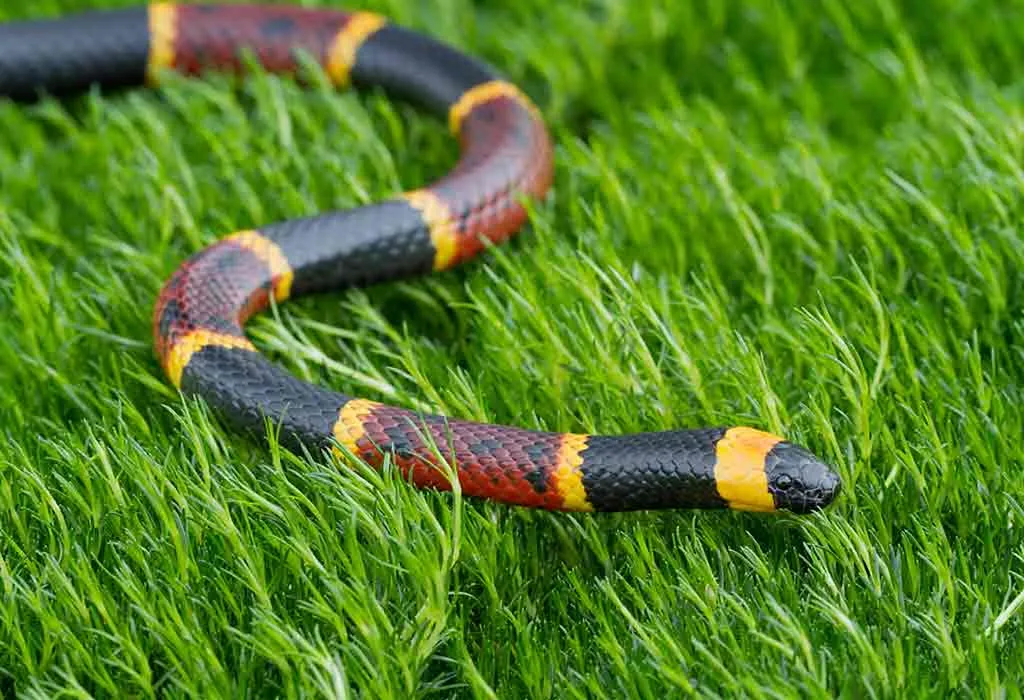
Scientific Name: Micrurus fulvius
Animal Type: Reptile
Habitat: Southeastern United States
Diet: Carnivore
Where Is It Found: Southeastern United States
33. Banded Krait
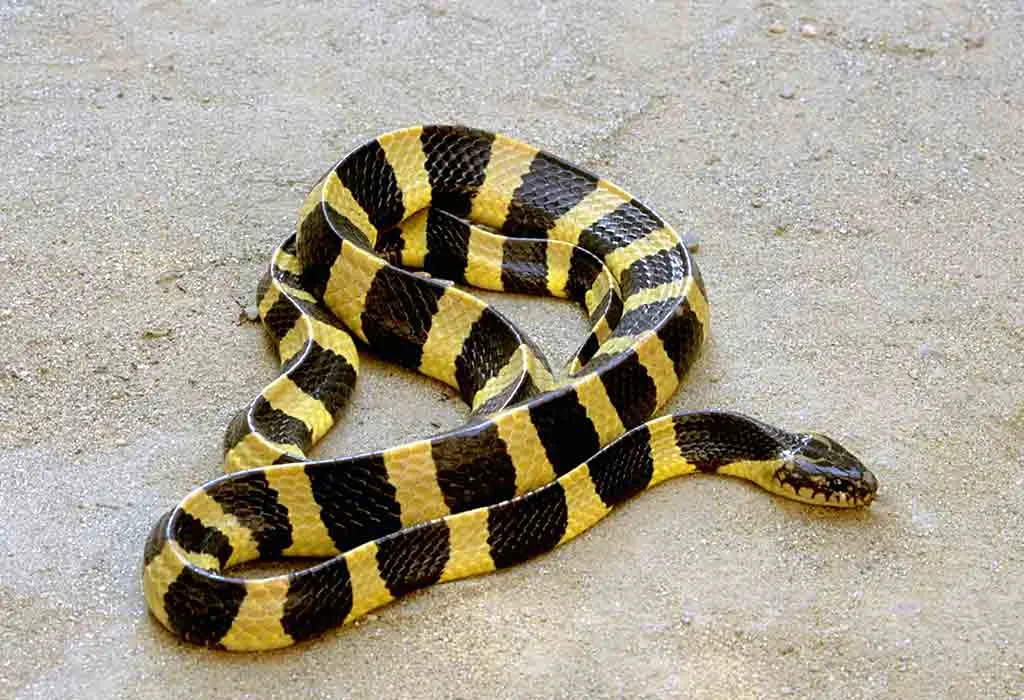
Scientific Name: Bungarus fasciatus
Animal Type: Reptile
Habitat: Southeast Asia
Diet: Carnivore
Where Is It Found: Southeast Asia
34. Barbary Macaque
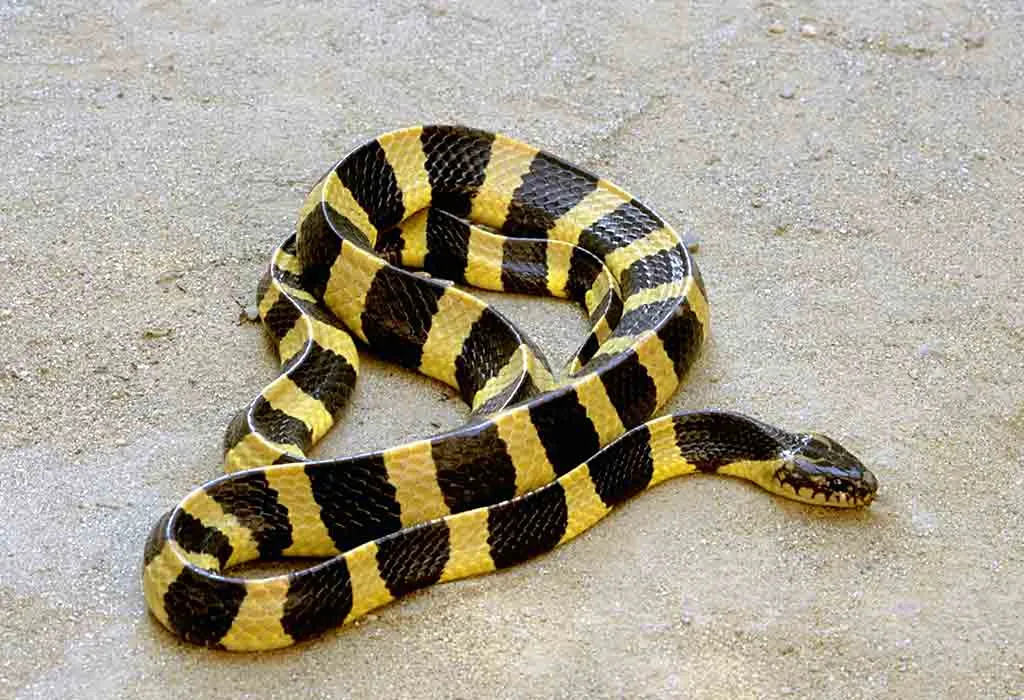
Scientific Name: Macaca sylvanus
Animal Type: Mammal
Habitat: Atlas Mountains of North Africa
Diet: Omnivore
Where Is It Found: North Africa
35. Striped Pajama Squid
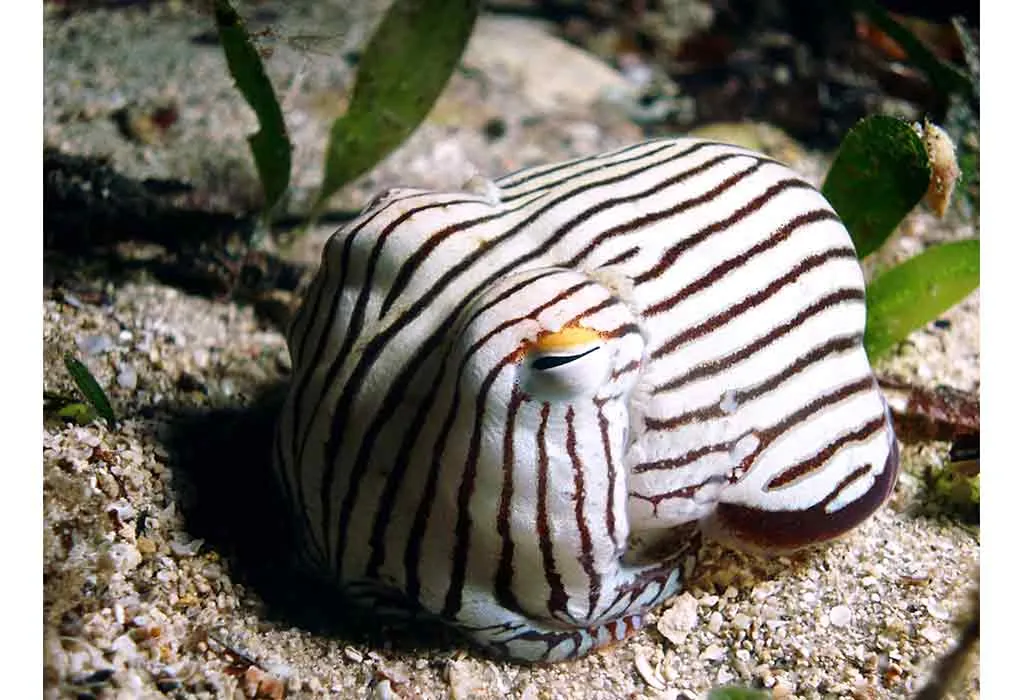
Scientific Name: Sepioloidea lineolata
Animal Type: Cephalapod
Habitat: Coral reefs and sandy flats in the Indo-Pacific
Diet: Carnivore
Where Is It Found: Australia
36. Rufous-Throated Solitaire (Not Stripes)
Scientific Name: Myadestes genibarbis
Animal Type: Bird
Habitat: Montane forests in Central America
Diet: Omnivore
Where Is It Found: Central America
37. Zebra Dove
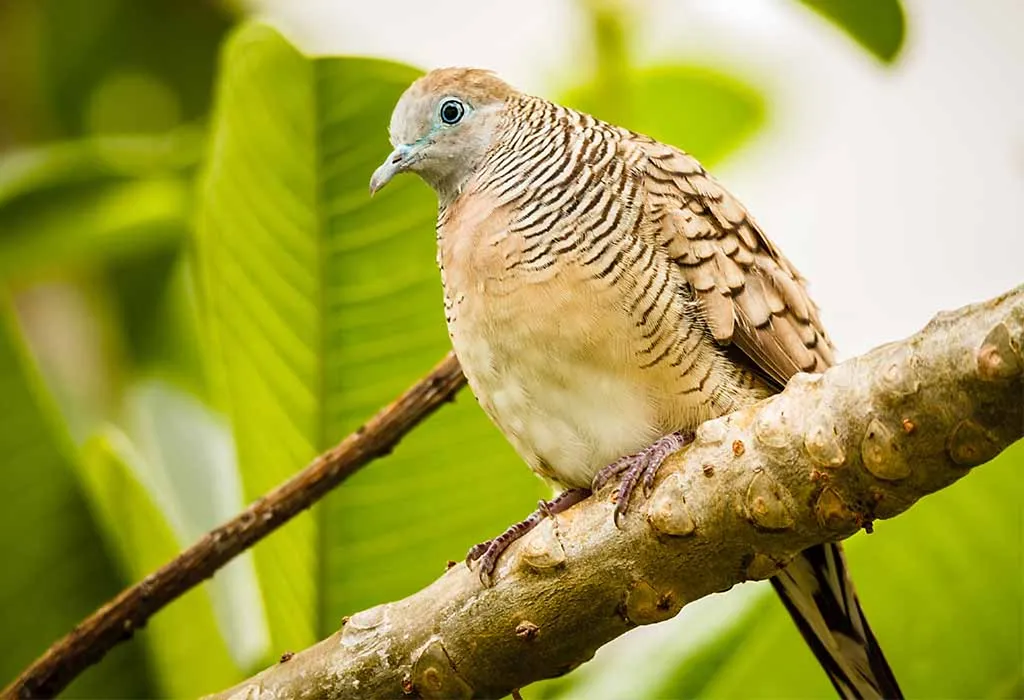
Scientific Name: Geopelia striata
Animal Type: Bird
Habitat: Southeast Asia and the Pacific
Diet: Herbivore
Where Is It Found: Southeast Asia and the Pacific
38. Prairie Kingsnake
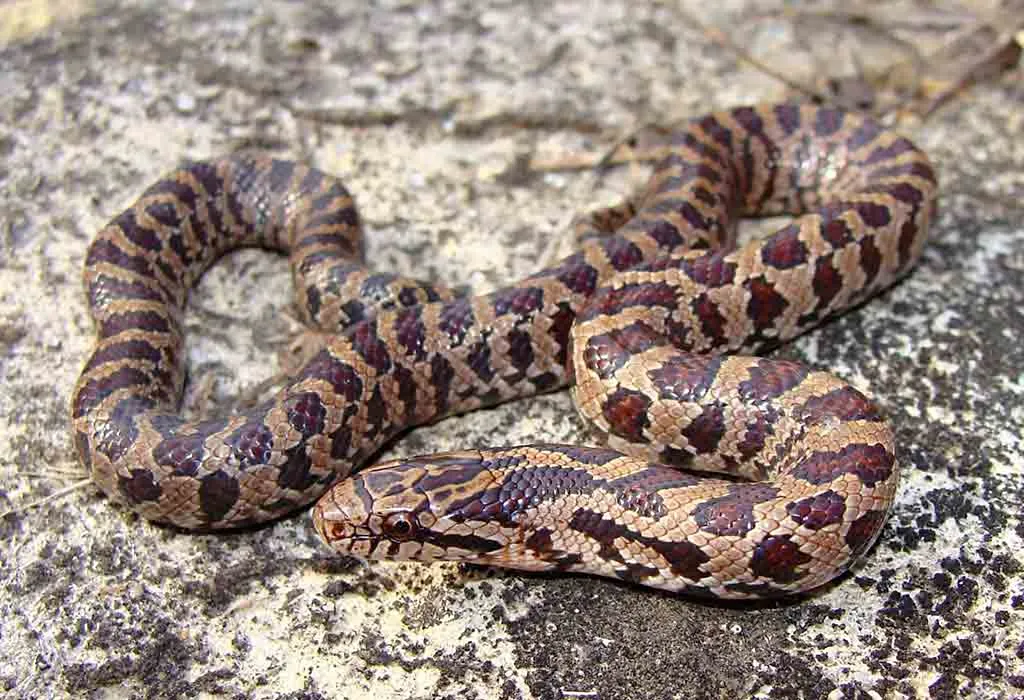
Scientific Name: Lampropeltis calligaster
Animal Type: Reptile
Habitat: Grasslands and prairies of North America
Diet: Carnivore
Where Is It Found: North America
39. Eastern Garter Snake
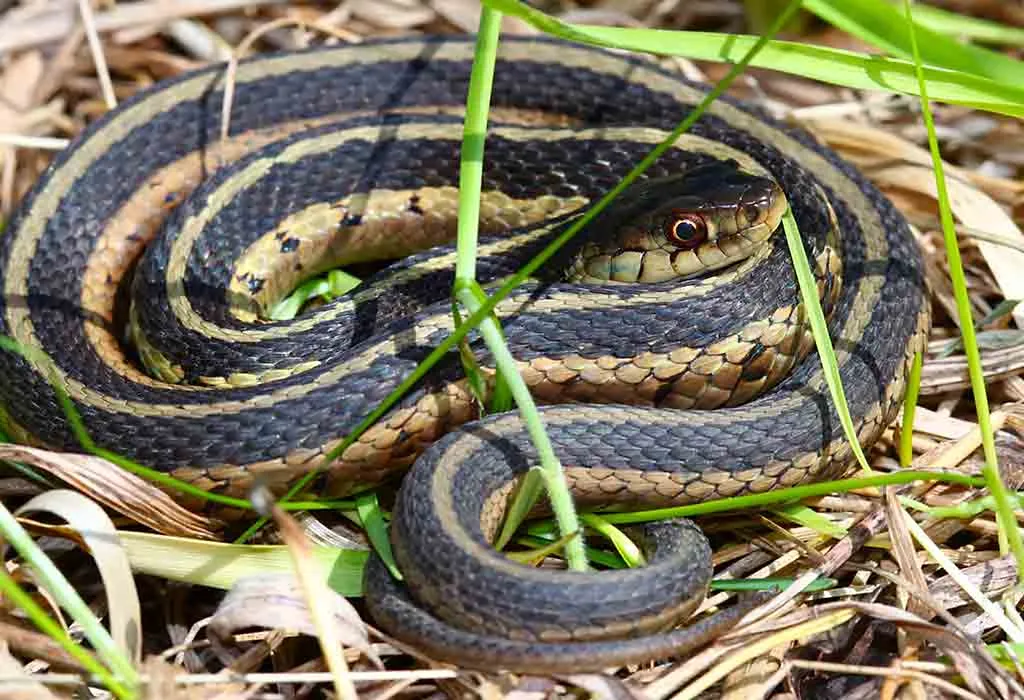
Scientific Name: Thamnophis sirtalis
Animal Type: Reptile
Habitat: Various habitats in North America
Diet: Carnivore
Where Is It Found: North America
40. Tasmanian Devil
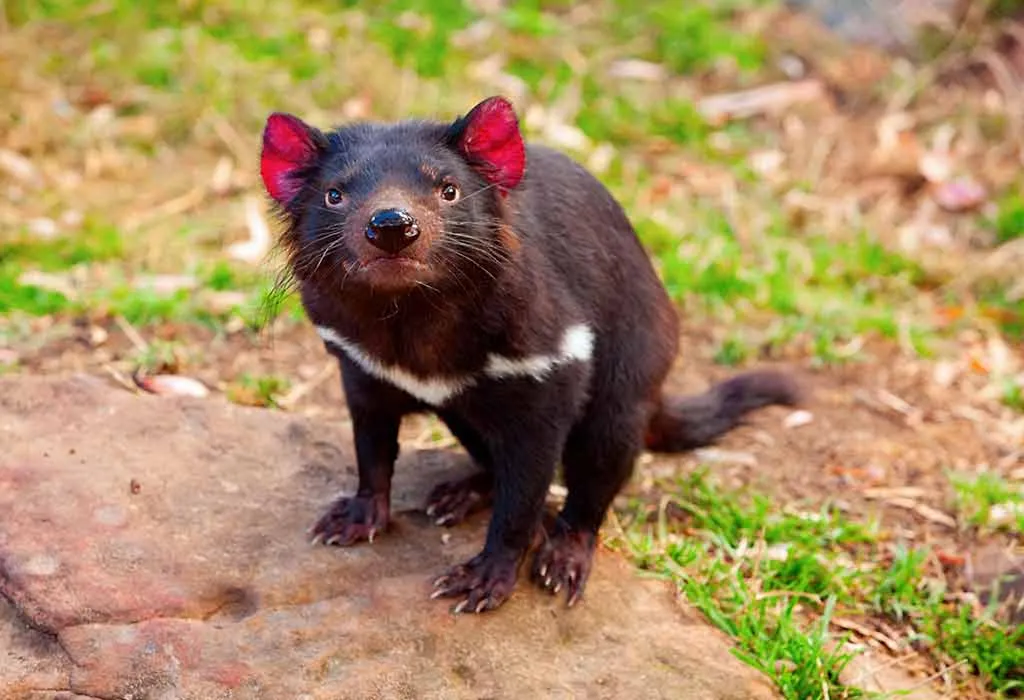
Scientific Name: Sarcophilus harrisii
Animal Type: Mammal
Habitat: Tasmania, Australia
Diet: Carnivore
Where Is It Found: Tasmania, Australia
This list of 40 striped animals provides a glimpse into the diverse and captivating world of creatures with stripes, encompassing various species from different habitats and regions.
In the captivating realm of wild and jungle animals with stripes, nature showcases its artistic prowess, adorning various species with striking patterns. From the wild savannahs to the controlled confines of zoos, these striped animals continue to fascinate us. Whether you seek pictures of animals with stripes or yearn to encounter them in their natural habitats, the world of striped creatures is a treasure trove of fascination.
The diversity among striped animal names is astonishing, from the iconic zebra and mighty tiger to lesser-known wonders like the quokka and mantis shrimp. These stripes serve myriad functions, from aiding in camouflage to conveying vital information within their communities. They remind us of the marvels of adaptation in the animal kingdom.
So, whether you’re an aspiring wildlife enthusiast or appreciate the beauty of wild animals, remember that stripes in the animal kingdom are more than mere patterns; they are nature’s way of telling unique stories of survival and adaptation. The next time you encounter jungle animals with stripes in a zoo or venture into the wild, take a moment to marvel at the artistry and ingenuity of these striped wonders.
References/Resources:
1. How Animals Got Their Spots and Stripes—According to Math; Scientific American; https://www.scientificamerican.com/article/how-animals-got-their-spots-and-stripes-mdash-according-to-math/
Also Read:
Smartest Animals in the World
List of Spring Animals for Kids
Fun Facts About Animals for Children
Was This Article Helpful?
Parenting is a huge responsibility, for you as a caregiver, but also for us as a parenting content platform. We understand that and take our responsibility of creating credible content seriously. FirstCry Parenting articles are written and published only after extensive research using factually sound references to deliver quality content that is accurate, validated by experts, and completely reliable. To understand how we go about creating content that is credible, read our editorial policy here.






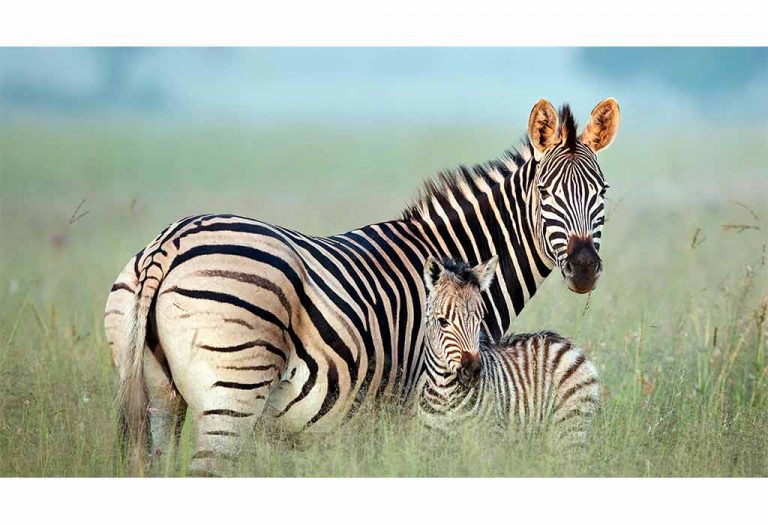





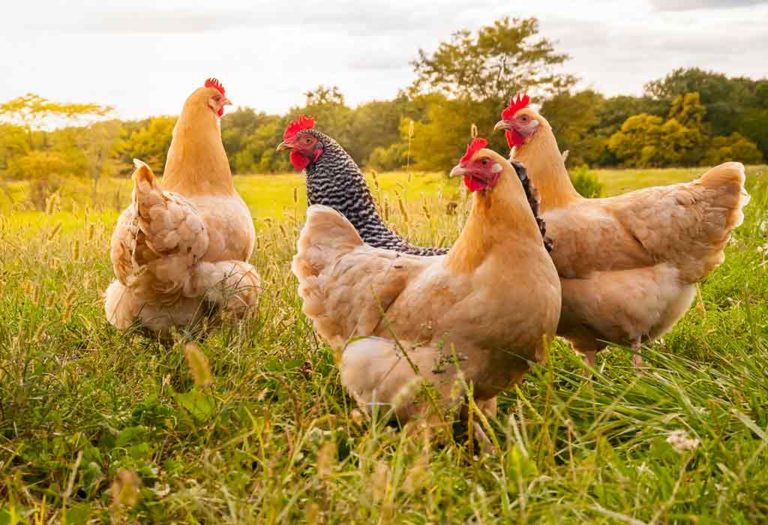


.svg)
















